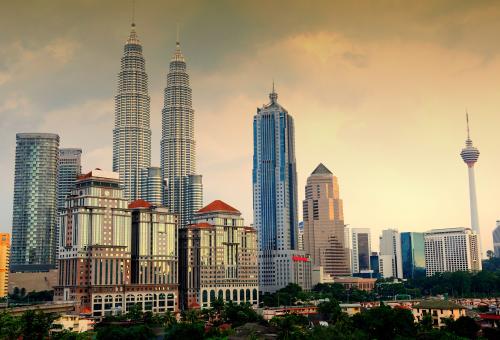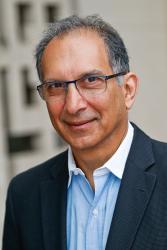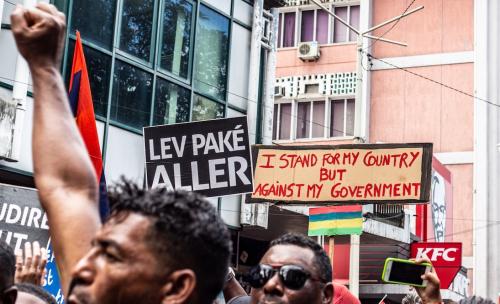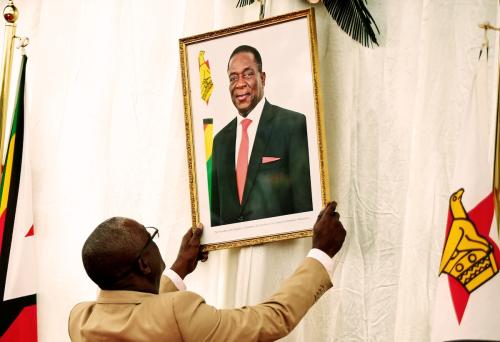As the global middle class takes center stage in a world grappling with shifting geopolitics, the transformative power of AI, and pressing environmental concerns in the hottest years on record, Homi Kharas joins the dialogue to dissect these complex issues. Kharas highlights the pivotal role of the middle class in steering our planet toward a sustainable and prosperous future.
REN: Homi, you’ve sparked important conversations lately about the global middle class, evident from your thought-provoking op-eds, your presence on numerous podcasts, and the buzz around your latest book, “The Rise of the Global Middle Class: How the Search for the Good Life Can Change the World.“ Your active engagement in these discussions spans decades, a fact well-known to some of our readers. Can you share what drew you to the study of the global middle class?
KHARAS: I’ve long been surprised at the amount of attention that is given to the very rich and the very poor. For example, I spent the bulk of my working career at the World Bank, which is an organization dedicated to reducing poverty in the world. So, much of my early work was heavily focused on poor people.
As I worked with governments and started to understand the politics of economic development, it became clear that what governments were trying to do almost everywhere was to develop a sound middle class. And it didn’t matter whether you were in an advanced economy or a so-called developing country.
But there was surprisingly very little in the popular or academic literature about what we mean by a middle class or how to go about developing it. So that interested me and got me started thinking about these issues.
REN: I know you have spent decades studying the middle class and have made significant contributions as a scholar-practitioner in lifting people out of poverty. Your tenure as a chief economist at the World Bank, particularly overseeing East Asia during a period of significant change in the early 2000s, provided you with a unique perspective on the dynamic role of the middle class. Why do you think now is a pivotal moment to reflect on the history and trajectory of the global middle class, and what makes this juncture of time so special?
Kharas: There are a number of things. First, it happens to be the case that by the definitions and metrics I use, the world has just passed a significant tipping point where, for the first time in history, most of the world’s population is now middle-class or richer. So, that’s dramatic.
The other thing, as I said earlier, is that the politics of almost every government are primarily focused on delivering for the middle class. Sometimes it’s called the median voter. But when you think, in any country, who is the median voter—the answer is always somebody who’s in the middle class in that country. You see this real coincidence of the middle class and politics. And if you want to be engaged in the policy of economic development, you’d better also think about the politics of how to implement those policies.
REN: Your book traces the astonishingly rapid rise of the global middle class, a phenomenon that has reshaped socio-economic landscapes worldwide. This group has not just expanded in size but has also cemented its role as a major force in shaping political narratives and economic strategies.
How does the rise of the global middle class affect geopolitics, particularly in terms of international relations, economic policies, and global stability?
KHARAS: I think at the core of realpolitik, and indeed of effective geopolitical strategy, is the sound understanding of what drives other countries. It’s about discerning their ambitions, apprehensions, and likely moves and setting your own strategies as a calculated response to the anticipated actions of others.
If you believe, as I do, that a key priority for government policies is fortifying their middle class, then you start to understand exactly how they will respond to various global challenges.
If you were to ask what is the likelihood of China and the U.S. collaborating to address global warming, it’s not about a shared mission to “save the planet”. But they might join forces because they think addressing climate change and improving local air quality aligns with the desires of their respective middle classes. This is because they think doing something about climate change is what the middle class in each of their countries wants. The middle class is increasingly feeling the brunt of climate impacts domestically, and they’re demanding that their governments do something about it. So, once you bring that understanding into the equation, the probability of China and the U.S. collaborating suddenly becomes much higher.
REN: Considering the major elections taking place globally in 2024, what are your observations on how the middle class is shaping political discourse and policies?
KHARAS: Just think about what’s happening right now in India, which is one of the world’s largest democracies and the largest middle class: Delhi was closed because of pollution, especially smog from the burning of agricultural residue and emissions of carbon. People will vote based on whether governments are doing something to give them clean air.
In the United States, there is a vigorous debate on whether the U.S. should lead on reducing carbon emissions or exploit its very ample resources of fossil fuels to promote its own development, and there will be a political cleavage and discussion around those issues.
The European Union will have elections. There, too, green parties are promoting various solutions. You’re also seeing a pushback against people who think the EU is going too fast in some areas. So many of these issues now are central to the economic platforms of different political parties.
I think at the core of realpolitik, and indeed of effective geopolitical strategy, is the sound understanding of what drives other countries. It's about discerning their ambitions, apprehensions, and likely moves and setting your own strategies as a calculated response to the anticipated actions of others.
Homi Kharas
REN: One thing that came to worry policymakers and tech billionaires alike in 2023 was the rapid advancement of generative artificial intelligence. Some think of this as another industrial revolution with far-reaching consequences. How concerned are you about the impact of AI on the middle class?
KHARAS: A lot of it clearly depends on policies and regulations. And we’ve always seen that technology brings change. Change is something that the middle class is not usually very comfortable with. They like stability and security. So, one has to manage the speed of change.
I think one of the discomforts with AI is that it’s potentially such a radical change in technology and in so many jobs that the change could come about much more quickly than the middle class is prepared to tolerate.
But one thing I explored in my book is how throughout history, technology is what created the middle class. Before we had technological change starting in the 19th century, we never had a middle class. So just from that point of view technology has so far always been the friend of the middle class rather than the enemy.
REN: It seems like technology, and AI in this instance, presents a double-edged sword, and with proper regulation and oversight, it may yield significant benefits instead of major disruptions to the global middle class.
KHARAS: Absolutely. And we already see how technology is affecting us all from cell phones to computers. What AI is now promising is to take those tools and make them even more powerful, because AI is fundamentally all about digitalization and the ability for all of us to harness technology in a much more powerful way.
REN: In a recent report by the G20-commissioned independent expert group, you opened with the statement, “The world is on fire, literally and figuratively.” Considering that 2023 was likely the hottest on record and projections suggest even warmer temperatures ahead in 2024, what roles does the global middle class play in both contributing to and addressing the climate crisis?
KHARAS: First of all, we have to understand that the issue at hand precisely stems from the mass consumerism associated with the middle class.
Some people have suggested that the implication of that is we should stop consuming. I think that’s probably wrong. What we want to do is to continue to consume and to prosper, but to do so in a green and clean way. And one of the things that technology offers is the ability to do just that.
What many in the middle class are advocating for is not stopping consumption, but a sensible and economically efficient approach. The sad reality is that we are subsidizing fossil fuels. It’s not just a lack of taxation on their negative impacts; it’s active subsidization.
The IMF has estimated that those subsidies amount to something like $7 trillion a year. That’s 7% of global GDP. It’s an absolutely massive number, but it’s because fossil fuel industries are large. They basically sold us a narrative that they and they alone, are the ones who can deliver the conditions of our prosperity. And they’ve generated structures so that we’re dependent on them.
The middle class is voicing a clear message: They believe, based on scientific evidence, it’s possible to have their cake and eat it too! It’s going to be the middle class that’s ultimately driving change. They will be the ones adopting electric vehicles, switching to electric stoves, reducing their energy intake, and pushing for companies to behave and produce in a responsible and sustainable way.
REN: And finally, what are some surprising or lesser-known facts about the rise of the global middle class that you’d like to share with the readers?
KHARAS: To me, one of the most surprising things is just how big the middle class is, and how rapidly it’s expanded. I suggested in my book that the middle class really started in the early 19th century. To get 1 billion people into the middle class, it probably took the world 150 years through the Industrial Revolution. The second billion came in about 30 years, and the third and fourth billions have come in eight or nine years each, really with the emergence of China and India driving those numbers.
And now we’re at 4 billion plus people in the global middle class—as I said, more than half the world in the middle class.
Many people think about the middle class as being under stress, and the middle classes as shrinking. I think that’s a completely distorted picture of the middle class, and it’s one that’s heavily dominated by the lack of progress of the middle class in Western economies. It fails to understand the extraordinary entry into the middle class of hundreds of millions of people, especially in Asia, every year.
We are adding 110 to 115 million people into the middle class each year, despite all the difficulties the global economy is presenting. But that’s what’s powering the world economy forward.
The Brookings Institution is committed to quality, independence, and impact.
We are supported by a diverse array of funders. In line with our values and policies, each Brookings publication represents the sole views of its author(s).







Commentary
‘The Rise of the Global Middle Class’: An interview with Homi Kharas
January 22, 2024